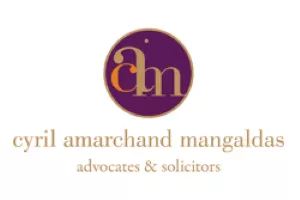- within Antitrust/Competition Law topic(s)
- in United States
Issues around payment of compensation in cases of clinical trial related injury, disability and death have long remained open. Despite a directive from the Hon'ble Apex Court, much was left open to question. On March 19 of this year, the Ministry of Health and Family Welfare (MoHFW) eventually took steps in this regard and notified the New Drugs and Clinical Trials Rules, 2019 (NDCT Rules) under the aegis of the Drugs and Cosmetics Act, 1940 (D&C Act), thus bringing an end to a long-drawn-out process to codify the rules applicable to clinical trials.
Legislative History of the NDCT Rules
Clinical trials were earlier conducted in accordance with the requirements set out in Schedule Y of the Drugs and Cosmetics Rules, 1945 (D&C Rules). However, there were concerns regarding patient safety and compensation provided to patients in cases of adverse effects suffered by them due to participation in clinical trials.
In 2012, a Public Interest Litigation (PIL) was filed by a patient-centric NGO before the Hon'ble Supreme Court of India, alleging malpractices in the conduct of clinical trials by government and non-governmental organisations, as well as by independent investigators1. While hearing this matter, regulatory aspects of clinical trials were discussed by the Court. In an order dated October 21, 2013, the Hon'ble Supreme Court opined that approvals for clinical trials should be based on all relevant aspects of safety and efficacy, particularly in terms of assessment of risk versus benefit to the patients, innovation vis-a-vis existing therapeutic options and unmet medical need in the country2.
In 2013, certain amendments were made to the D&C Rules, to regulate the clinical trials conducted in India. Rule-122DAB was inserted into the D&C Rules, vide the Drugs and Cosmetics (First Amendment) Rules, 20133. This Rule, inter alia, provided for compensation to an affected clinical trial subject in case of injury or death during a clinical trial. The clinical trial subject was made eligible for financial compensation over and above free medical management. The quantum of compensation was to be determined by the Licensing Authority.
Rule-122DAC was inserted into the D&C Rules, vide the Drugs and Cosmetics (Second Amendment) Rules, 20134, which lists out the conditions for the conduct of clinical trials. These conditions include, inter alia, the requirement to comply with Schedule Y of the D&C Rules, obtaining approval of an Ethics Committee, registration of the trial with the Clinical Trials Registry of India, submission of reports of serious adverse events, etc. Further, the guidelines in relation to composition and registration of ethics committees were notified vide the Drugs and Cosmetics (Third Amendment) Rules, 20135.
Deficiencies in regulation of clinical trials had been observed in the 59th Report of the Parliamentary Standing Committee on Health and Family Welfare on the functioning of the Central Drugs Standard Control Organisation (CDSCO)6, and in the report of an expert committee set up by the MoHFW under the chairmanship of Prof. Ranjit Roy Chaudhury. Thereafter, on February 1, 2018, the MoHFW published the draft of the NDCT Rules for comments from all stakeholders7. A window of 45 days was given for sending comments on these rules. However, it took the MoHFW a long time to consider the Rules and finalise them. The Supreme Court took notice of this delay, and in an order dated December 4, 2018, noted the Government's submission that the rules will be finalised within two months. When the Court observed that two months may be too long a period, the Government assured the Court that, if possible, the NDCT Rules could be finalised even before that8. They were finally notified on March 19, 2019.
Salient Features of the NDCT Rules
- The NDCT Rules have come into force from March 19, 2019 onwards, except for Chapter IV, which shall come into effect 180 days after publication in the Gazette, i.e. 180 days after March 19, 2019.
- Rule 2(w) defines a "new drug" to include, inter alia, 'a drug, including active pharmaceutical ingredient or phytopharmaceutical drug, which has not been used in the country to any significant extent', 'a drug approved by the Central Licensing Authority for certain claims and proposed to be marketed with modified or new claims', 'a fixed dose combination of two or more drugs, approved separately for certain claims and proposed to be combined for the first time in a fixed ratio', 'a modified or sustained release form of a drug or novel drug delivery system of any drug approved by the Central Licensing Authority', or 'a vaccine, recombinant Deoxyribonucleic Acid (r-DNA) derived product, living modified organism, monoclonal anti-body, stem cell derived product, gene therapeutic product or xenografts, intended to be used as drug'. Stem cell based products are, therefore, also deemed to be "new drugs" under the NDCT Rules.
- The NDCT Rules are applicable to, and regulate, all new drugs, investigational new drugs for human use, clinical trials, bioequivalence studies, bioavailability studies and Ethics Committees.
- "Adverse event" has been defined under Rule 2(d) to mean any untoward medical occurrence (including a symptom or disease or an abnormal laboratory finding) during treatment with an investigational drug or a pharmaceutical product in a patient or a trial subject. In cases of adverse events, compensation is payable to the trial subject/ patient.
- The Drugs Controller, India, appointed by the Central Government in the MoHFW has been designated as the Central Licensing Authority under the NDCT Rules, to act as the nodal entity for licensing and approvals under these rules (Section 3).
- Ethics Committee: Under the NDCT Rules, an Ethics Committee is required to be set up and registered by whoever intends to conduct clinical trials or bioavailability studies or bioequivalence studies. The study/ trial can be conducted only with the approval of this Committee, whose registration with the Central Licensing Authority will be valid for a period of five years. In case of any serious adverse event during a clinical trial or bioavailability or bioequivalence study, the Ethics Committee is required to analyse the relevant documents pertaining to such event and forward its report to the Central Licensing Authority (Chapter III).
- The Application for permission to conduct clinical trials is required to be submitted to the Central Licensing Authority in Form CT-04. Further, the application has to be accompanied with information and documents as specified in the Second Schedule and Fee as specified in the Sixth Schedule (Rule 21).
- Deemed Approval: Under Rule 23, when a drug is discovered in India, or research and development of the drug are being done in India and also the drug is proposed to be manufactured and marketed in India, the application for permission to conduct clinical trials in respect of such drugs shall be disposed off by the Central Licensing Authority within 30 working days of receipt of such application, and if the applicant does not receive any communication during this period, the permission to conduct the clinical trial shall be deemed to have been granted by the Central Licensing Authority.
- Compensation: The most important changes brought in by the NDCT Rules, are the provisions related to compensation. Chapter VI of the NDCT Rules, deals with compensation in case of injury or death in clinical trial or bioavailability or bioequivalence studies of new drugs or investigational new drugs. The quantum of compensation is required to be calculated on the basis of the formula specified in the Seventh Schedule of the NDCT Rules9.
- Manufacture of New Drugs for Clinical Trial: Permission of the Central Licensing Authority must be obtained to manufacture a new drug for conducting a clinical trial or bioavailability or bioequivalence study or for examination, test and analysis. The permission, if granted, is valid for a period of three years. The labelling requirements and other conditions for grant of permission have also been laid down in the NDCT Rules (Chapter VIII).
- Import of New Drugs for Clinical Trial: A licence from the Central Licensing Authority must be obtained to import a new drug for conducting a clinical trial or bioavailability or bioequivalence study or for examination, test and analysis. The licence, if granted, is valid for a period of three years. The labelling requirements and other conditions for grant of the licence have also been laid down in the NDCT Rules (Chapter IX).
Analysis and Conclusion
The NDCT Rules replace Part XA and Schedule Y of the D&C Rules. The earlier regime, which these NDCT Rules have replaced, was made up of multiple stop gap measures and, therefore, the notification of a dedicated, comprehensive set of rules to regulate "new drugs" and clinical trials will lead to greater clarity and synchronisation in the regulatory requirements to conduct clinical trials in India.
Despite this, some areas of concern still remain. For instance, the attempt to prescribe a system for compensation to trial subjects in cases of death and injury may be seen as an attempt by the executive to surpass its mandate and cross over into the domain of the judiciary. This is especially so because provisions of the D&C Act do not provide for payment of compensation in such cases. Further, any and all Rules made under the Act and more specifically under Section 12 and 33 of the D&C Act, under whose auspices the NDCT Rules have been framed, do not empower the Central Government to make any rules prescribing compensation as the Act itself, in the chapters to which these rule making powers apply, is silent on this aspect.
The D&C Act is silent on the issue of compensation, and the compensation formula contained in the NDCT Rules can be seen as the rules going beyond the scope of the D&C Act. However, for the time being, absent of any judicial ruling on the validity of the compensation formula, and absent any challenge to the same, the law stands. How this will fare with the industry, only time will tell.
Footnotes
1 Swasthya Adhikar Manch, Indore & Anr. Vs. Ministry of Health & Welfare and Ors., W.P. (C) 33/2012.
2 https://sci.gov.in/jonew/bosir/orderpdfold/1832412.pdf
3 Gazette Notfication- GSR 53(E) available at https://cdsco.gov.in/opencms/opencms/system/modules/CDSCO.WEB/elements/download_file_division.jsp?num_id=MTI4Ng
4 Gazette Notification- GSR 63(E) (available at https://cdsco.gov.in/opencms/opencms/system/modules/CDSCO.WEB/elements/download_file_division.jsp?num_id=MTMxNA==)
5 Gazette Notification- GSR 72(E) (available at https://cdsco.gov.in/opencms/opencms/system/modules/CDSCO.WEB/elements/download_file_division.jsp?num_id=MTMxNg==)
7 Gazette Notification- GSR 104(E) (available at https://cdsco.gov.in/opencms/opencms/system/modules/CDSCO.WEB/elements/download_file_division.jsp?num_id=OTU0)
8 https://sci.gov.in/supremecourt/2012/1056/1056_2012_Order_04-Dec-2018.pdf
The content of this article is intended to provide a general guide to the subject matter. Specialist advice should be sought about your specific circumstances.
[View Source]



